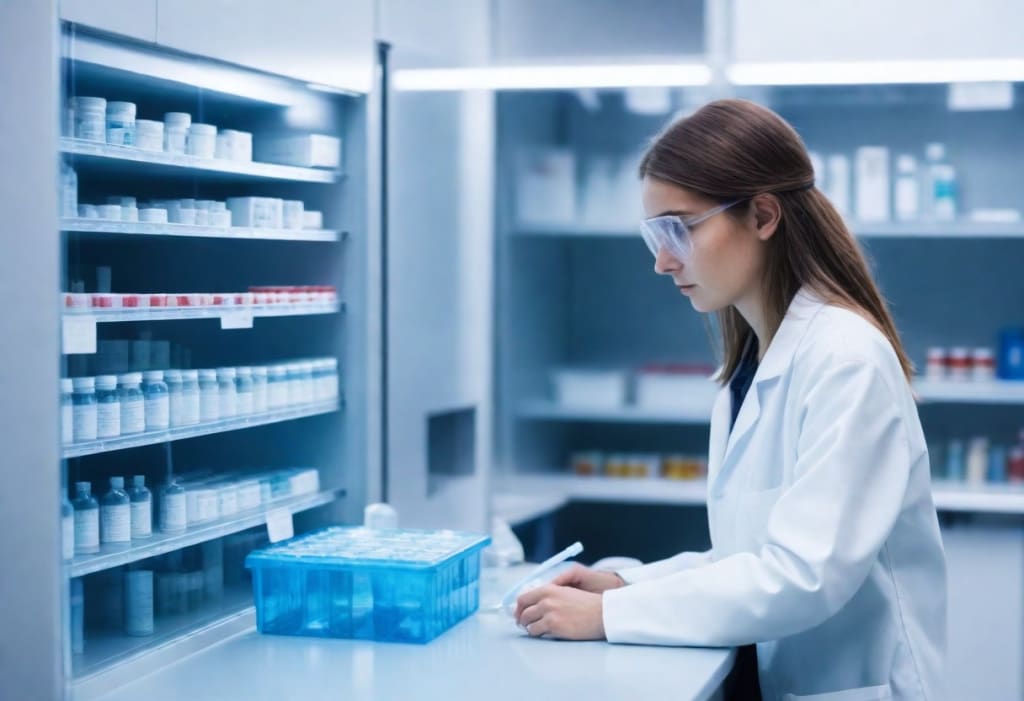Enhancing Product Quality Review through Automated Excursion Handling in Pharmaceutical Manufacturing
Traditional vs Technological Approach

Effective excursion handling is vital in pharmaceutical manufacturing to maintain product quality and regulatory compliance. Integrating technological solutions into Product Quality Review (PQR) workflows offers a comprehensive approach to address deviations promptly and efficiently. By automating excursion handling processes within the PQR framework, pharmaceutical companies can ensure timely resolution of issues, enhance product quality, and streamline regulatory compliance.
Challenges in Traditional Excursion Handling within PQR
Traditional approaches to excursion handling within PQR workflows often rely on manual documentation and investigation processes. This manual approach can lead to delays in identifying and resolving excursions, increasing the risk of product quality issues. Moreover, the lack of real-time data visibility and integration with PQR systems makes it challenging to assess the impact of excursions on overall product quality.
Role of Technological Solutions in PQR Excursion Handling
Integrating technological solutions into PQR workflows enables proactive management of excursion events, facilitating seamless integration with manufacturing data and PQR systems. By leveraging automation, data analytics, and real-time monitoring capabilities, pharmaceutical companies can enhance their ability to detect, investigate, and mitigate excursions effectively within the PQR framework.
Key Components of Automated Excursion Handling in PQR
Real-Time Data Integration: Automated excursion handling systems should integrate seamlessly with manufacturing data systems to capture real-time process data and excursion events. This integration provides visibility into manufacturing processes, allowing for early detection and assessment of such deviations within the PQR framework.
Automated Alerting and Escalation: Automated alerting mechanisms notify relevant stakeholders, including quality assurance, production, and regulatory teams, about excursion events in real time. Escalation protocols ensure that critical issues are promptly addressed within the PQR framework, minimizing the impact on product quality and compliance.
Root Cause Analysis and Impact Assessment: Utilizing data analytics and AI-driven tools, organizations can conduct root cause analyses and assess the impact of excursions on product quality within the PQR framework. This enables informed decision-making regarding corrective and preventive actions (CAPAs) to mitigate risks and prevent recurrence.
Electronic Documentation and Reporting: Replace manual documentation with electronic systems for recording excursion details, investigation findings, and CAPAs within the PQR framework. Centralized electronic repositories ensure data integrity, facilitate regulatory compliance, and enable traceability during audits and inspections.
Continuous Improvement through PQR Integration: Automated excursion handling systems should be seamlessly integrated with PQR workflows to support continuous improvement initiatives. Leveraging historical excursion data and PQR reports, organizations can identify trends, implement process improvements, and enhance overall product quality within the PQR framework.
Benefits of Automated Excursion Handling within PQR
Enhanced Product Quality Review: Automation of excursion handling processes within PQR workflows ensures timely identification and resolution of excursions, enhancing the overall quality review process.
Improved Compliance: Automated excursion handling systems facilitate regulatory compliance by enforcing standardized processes, documentation practices, and CAPA implementation within the PQR framework.
Efficient Resource Utilization: By automating routine tasks and streamlining workflows, pharmaceutical companies can optimize resource allocation and reduce the time and effort required for excursion handling within the PQR framework.
Proactive Risk Management: Real-time monitoring and data analytics capabilities enable proactive risk management within the PQR framework, minimizing the impact of excursions on product quality and patient safety.
Conclusion: Automating excursion handling processes within PQR workflows is essential for pharmaceutical companies to maintain product quality, ensure regulatory compliance, and drive continuous improvement. By leveraging technology solutions to integrate real-time data, automate alerting mechanisms, and facilitate root cause analysis within the PQR framework, organizations can enhance their ability to manage excursions effectively and proactively. Embracing this feature within PQR workflows is critical for pharmaceutical companies to stay competitive, mitigate risks, and deliver safe and effective products to patients worldwide.
About the Creator
Reader insights
Outstanding
Excellent work. Looking forward to reading more!
Top insight
Heartfelt and relatable
The story invoked strong personal emotions





Comments (1)
Awesome story I like it